I want to run a JMeter test with a number of concurrent threads with each thread sending a request every 10 seconds.
These are my thread properties.
Number of Threads: 10
Ramp-Up Period: 10
Loop Count: 1
Result: 10 requests divided over 10 seconds, so every second a request and exactly what I want.
Now I want to run this test for 3 times(30 seconds). So I set the Loop Count to 3.
But the result is: 30 requests in 10 seconds. This is strange, because I would expect to run this for 30 seconds and get 1 request per second.
How can I achieve this with JMeter?
My final goal is to run this test for a long period and also increase the Number of Threads.
How to do this with JMeter?

